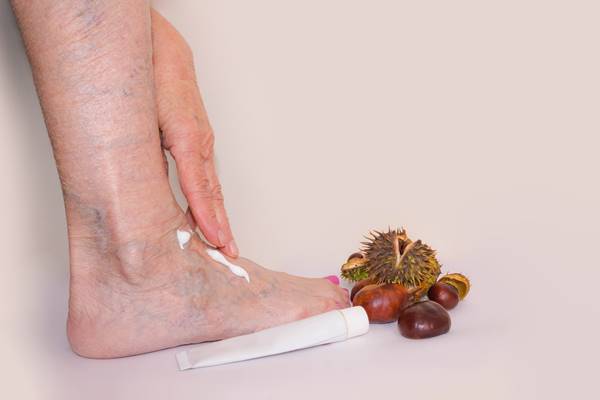Varicose veins, those unsightly bulging blood vessels often found on the legs, can be a source of discomfort and embarrassment for many people. While there are various treatment options available, including medical procedures and lifestyle changes, supplements can also play a significant role in managing varicose veins. Supplements that target varicose veins work by improving blood circulation and strengthening the walls of blood vessels.
They are typically rich in key nutrients such as vitamin C, vitamin E, horse chestnut extract, and bioflavonoids. These nutrients help to reduce inflammation, promote healthy blood flow, and support vein elasticity.

While supplements alone may not eliminate varicose veins entirely, they can provide valuable support when used in conjunction with other treatment methods.
It is important to consult with a healthcare professional before starting any supplement regimen to ensure they are safe for your individual needs.
Essential Nutrients For Promoting Healthy Vein Function
Maintaining healthy vein function is crucial for preventing and managing varicose veins. While there is no magic pill to cure this condition, certain nutrients can support overall vein health.
One key nutrient is vitamin C, which aids in collagen production and strengthens the walls of blood vessels, reducing their susceptibility to varicosities.
Another essential nutrient is vitamin E, known for its antioxidant properties that help protect blood vessels from oxidative damage.
Additionally, bioflavonoids such as rutin and hesperidin have been shown to improve venous tone and reduce inflammation in the veins. These compounds work synergistically with vitamin C to enhance its effectiveness.
Omega-3 fatty acids are also beneficial due to their anti-inflammatory properties, which can alleviate swelling associated with varicose veins.
The Top Supplements For Varicose Veins
While medical treatments exist, many individuals seek natural remedies to manage their symptoms. Fortunately, several supplements have shown promising results in promoting vein health and reducing the appearance of varicose veins.
1. Horse Chestnut Extract: Known for its anti-inflammatory properties, horse chestnut extract is widely used to alleviate pain and swelling associated with varicose veins.
2. Diosmin: Derived from citrus fruits, diosmin enhances blood flow and strengthens blood vessels, leading to improved vein function.
3. Butcher’s Broom: This herb contains compounds that reduce inflammation and strengthen blood vessel walls.
4. Grape Seed Extract: Rich in antioxidants, grape seed extract helps protect blood vessels from damage caused by free radicals.
How To Choose And Use Supplements For Optimal Results
When it comes to choosing and using supplements for varicose veins, it is important to be well-informed and make educated decisions for optimal results.
Firstly, consult with your healthcare provider or a qualified professional who can assess your individual needs and provide guidance on suitable supplements. Look for supplements that contain key ingredients like horse chestnut extract, grape seed extract, or butcher’s broom extract, as these have been shown to support healthy circulation and promote vein health.
Additionally, ensure that the supplement is manufactured by a reputable company that follows good manufacturing practices (GMP) to guarantee quality and purity. Read the label carefully to understand the recommended dosage and any potential side effects or contraindications.
It is also essential to be patient with the supplementation process, as it may take some time before noticeable improvements occur.
Remember that supplements should complement a healthy lifestyle, including regular exercise and a balanced diet, rather than replace them entirely.
Potential Risks And Side Effects Of Varicose Vein Supplements
While varicose vein supplements may offer potential benefits for individuals seeking relief from the discomfort and appearance of varicose veins, it is important to be aware of the potential risks and side effects associated with these products. Firstly, some supplements may interact negatively with certain medications or medical conditions, so it is crucial to consult a healthcare professional before starting any new supplement regimen.
Additionally, certain ingredients commonly found in varicose vein supplements, such as horse chestnut extract or grape seed extract, have been known to cause stomach upset, dizziness, or headaches in some individuals.
In rare cases, allergic reactions can occur after taking these supplements. Moreover, due to limited regulation and oversight in the supplement industry, there is a risk of purchasing low-quality or adulterated products that may not deliver the promised benefits or even contain harmful substances.
Therefore, cautious consideration should be exercised when choosing and using varicose vein supplements.
Incorporating Lifestyle Changes Alongside Supplement Use
While supplements can be beneficial for managing varicose veins, they are most effective when combined with lifestyle changes. Incorporating these changes can help improve overall vein health and enhance the effectiveness of the supplements.
Firstly, regular exercise is crucial for promoting blood circulation and reducing vein inflammation. Engaging in low-impact activities such as walking or swimming can be particularly helpful.
Additionally, maintaining a healthy weight reduces the strain on veins and decreases the risk of developing varicose veins.
Moreover, adopting a diet rich in fiber and antioxidants can support vein health by reducing inflammation and strengthening blood vessels. Consuming foods like fruits, vegetables, whole grains, and lean proteins is highly recommended.
It is also essential to avoid prolonged periods of sitting or standing, as these positions increase pressure on the veins.